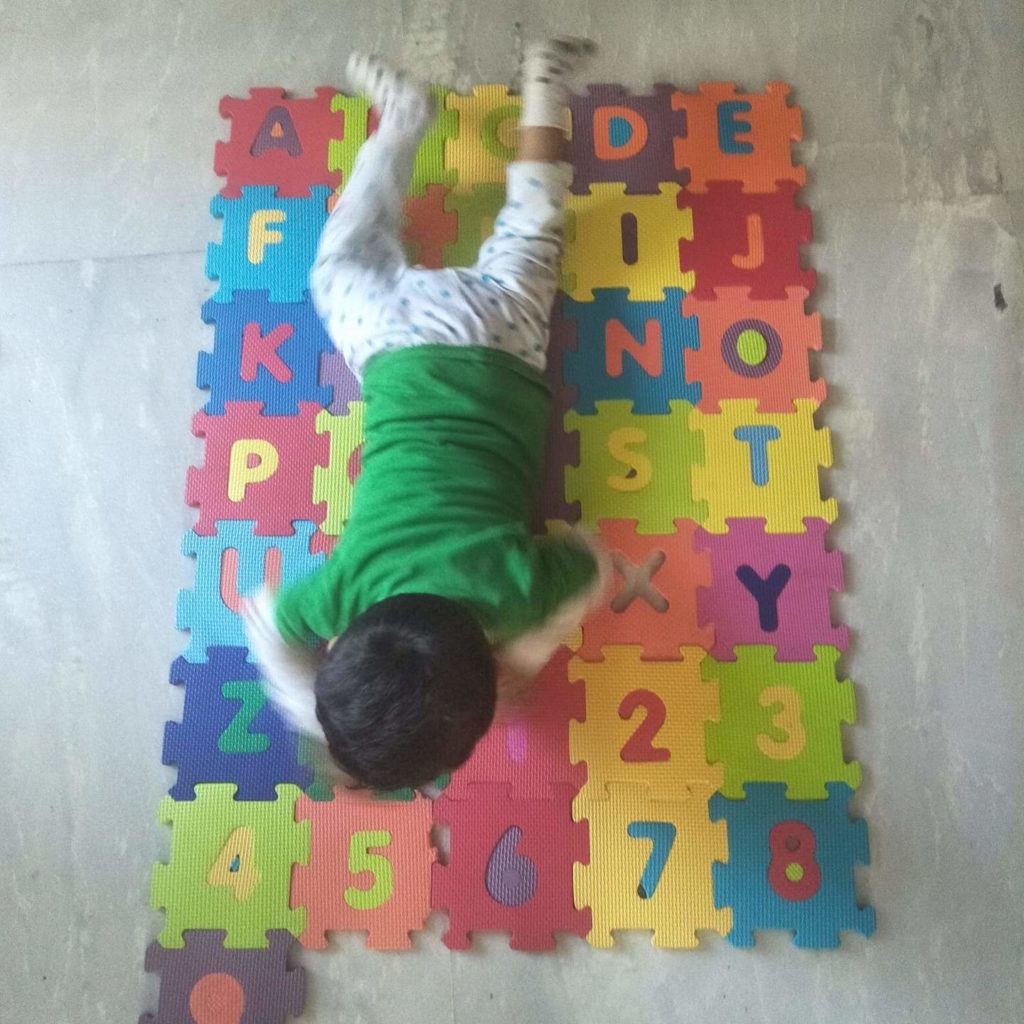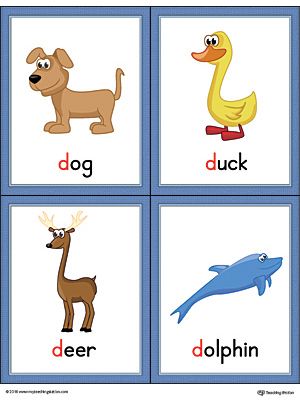Again this was something that I saw a parent asking about on social media.

I would start by sharing books with children; as many as possible.
My favourite children’s books here.
Next have a game with children were you hold up an everyday object and ask what letter it begins with, for example, hold up a ball , if the child doesn’t know then say b-all making the b sound really prominent.

When I was working as a registered child minder I put photos of the children on my playroom wall with their name written underneath, showing the initial letter, i.e, J is for for James, M is for Miles, L is for Laura.
I came unstuck with P is for Phoebe ( as it sounds like it begins with an F).
I once had a parent ask when I was going to teach his child the alphabet; as the boy was only just 3, I explained that he already knew the letters that were significant to him, e.g. the letter that his name began with, he also knew that K was for Karen, my name and A for Alec, my husband. The parent seemed happy with my explaination.
I have heard children sing the alphabet, but I don’t feel that they really understood it; they had merely learned the words to a song. just as they would to the wheels on the bus.
A girl that I had in my care pointed to the H on the hot tap and said “His for Hayden”(her brother) and while we were out walking we saw a road sign for Park Lane, she told me P was for Pippa ( her mum) and the K was for Keeva (her name).
Use every opportunity to point out letters to children, make it fun.
My youngest enjoyed playing a letter game using flash cards, When we visited a wildlife park he proudly pointed to the sign on the monkey’s cage and said “Mummy” my older boys found this hilarious, as they thought that he was saying that I looked like the monkey!
There are alphabet books and posters available to buy that would help with letter recognition, or you could make your own; simply stick pictures or photos of things that your child is interested in into a scrap book to make a personal alphabet learning opportunity.

As always questions and comments are welcome.
Until next time.
Karen x
Linked with

Discover more from The Next Best Thing To Mummy
Subscribe to get the latest posts sent to your email.
Making things fun and not a chore is always best, little and often worked with mine #KCACOLS
These are great tips! I’ll have to keep these in mind for when I have kids 🙂 #KCACOLS
Great tips! I found the alphabet song really helped with letters and other songs like “once i caught a fish alive” for numbers. My toddler is 2.5 and knows her numbers to 10 but a little sketchy to 20 and recognises all the letters of the alphabet. We’ve just started on writing indivitual letters now too. I also second what you said about books – starting as early as possible really is essential for learning. #KCACOLS
Thanks for stopping by and sharing your thoughts and experience
Some good tips. We had some big plastic letters when the grandchildren were small. They soon got the hang of the letter sounds.
#anythinggoes
Wonderful tips as ever. I remember my son reading B & B as Bob the Builder years ago when he was tiny. #AnythingGoes
Great tips. We are currently starting with little letters. And before the lockdown we spent time when outside finding letters on everyday objects.#KCACOLS
That’s great, thanks for sharing
Lovely simple and quick ideas here. My youngest son is autistic, so standard ways of teaching go out the window. He is however, making progress so maybe now’s the time to try some of your tips.
#StayClassyMama
Thanks and good luck
Popping back with #StayClassyMama 😁
Such a fun season of childhood!
I love that you helped the littles identify their important letters. My daughter didn’t get the alphabet song for a while BUT she knew her letters, what sounds they make and words they started. #alittlebitofeverything
Such a great tips – and useful for trying something a bit different. Thanks so much for linking up at #KCACOLS. Hope you come back again next time!
Great ideas.
We are working with our youngest on this right now.
#KCACOLS
I think keeping it fun is so important when they are really little, with lots of repetition too. Thank you for joining us for the #mischiefandmemories linky.
Absolutely, Annette, thanks, for having me as part of the linky, as always
Making it fun is definitely the best way!
Oops forgot to put #mischiefandmemories
Absolutely, thanks for your comment
I think the way that Alphablocks teaches phonics is excellent but obviously letter recognition needs to come first. My youngest adores magnetic letters while my eldest used to watch Countdown when he was a toddler! Thanks for linking up with #MischiefAndMemories
As always, thanks for your input, Laura and for having me as part of the linky
We put the alphabet decal stickers with fun animal pictures on the wall in my kids bedroom and we talked about them every night whilst getting ready for bed. It worked a treat #MischiefandMemories
That’s a great idea, thanks for passing it on
Kids have such magnetic little brains! We can make learning fun!
Yes,Michele
Fun is the best way to learn x #mischeieveandmemories
Absolutely, Sam, thanks for stopping by
These are some lovely tips. I found that having books always to hand helped heaps. And, when reading I’d point to each word too. Thank you for joining us for #mischiefandmemories xx
Thanks for your kind words and for having me as always, Annette
I feel much more confident now that I work in a school and know the phonics and cued articulation. It is so important to make it fun and relevant so children enjoy learning. Thanks for linking up with #MischiefAndMemories
Absolutely, Laura, thanks for having me as a part of the linky